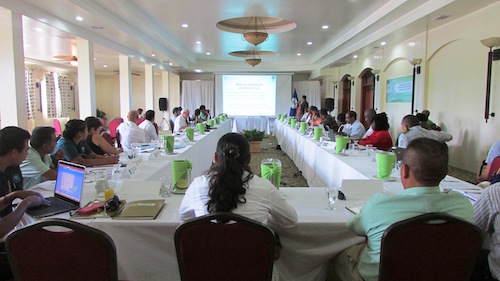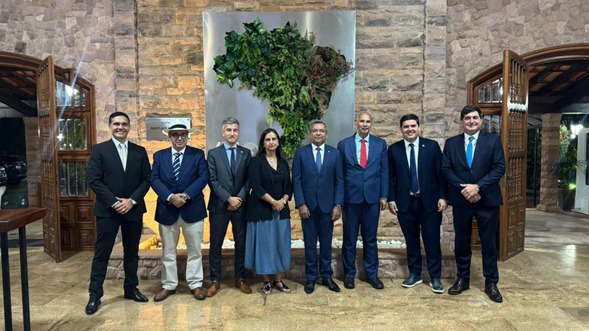Twelve countries from the CARIFORUM Region met at the 21st Meeting of the Coordinating Group of Pesticides Control Boards of the Caribbean (CGPC) in Belize to discuss responsible pest and pesticide management in the Sub-region.

(Bridgetown, Barbados. June 16, 2016) – The 21st Meeting of the Coordinating Group of Pesticides Control Boards of the Caribbean (CGPC) was held in San Ignacio, Belize under the theme: “A changing climate! A changing world! Responsible pest and pesticide management – our responsibility”.
The Meeting, which was held 6 – 10 June, 2016, was funded by the 10th European Development Fund (EDF) Sanitary and Phytosanitary (SPS) Project, which is being implemented by the Inter-American Institute for Cooperation on Agriculture (IICA) and the Food and Agriculture Organization (FAO) of the United Nations.
The Meeting’s proceedings included a 3-day planning workshop for the implementation of activities under a project funded by the Global Environmental Facility (GEF) titled “Disposal of Obsolete Pesticides including Persistent Organic Pollutants (POPs), Promotion of Alternatives and Strengthening Pesticides Management in the Caribbean” and Phase II of an EU-funded project titled “Capacity Building related to Multilateral Environmental Agreements (MEAs) in African, Caribbean and Pacific (ACP) countries – Clean-up of obsolete pesticides, pesticides management and sustainable pest management.” This project is being implemented by FAO.
During the CGPC Meeting, several decisions and resolutions were taken including a decision to assess several pesticides which have potentially harmful effects to humans, animals and the environment. The results of the assessment will be shared among member of the CGPC for further action at the country level.
The CGPC is comprised of representatives from the Pesticides and Toxic Chemicals Boards or Authorities of the countries of the Caribbean, and associate members representing other stakeholders. The group meets annually in one of the Member countries. The 21st Meeting of the CGPC was attended by representatives from twelve CARIFORUM countries.
For more information, please contact: carol.thomas@iica.int











